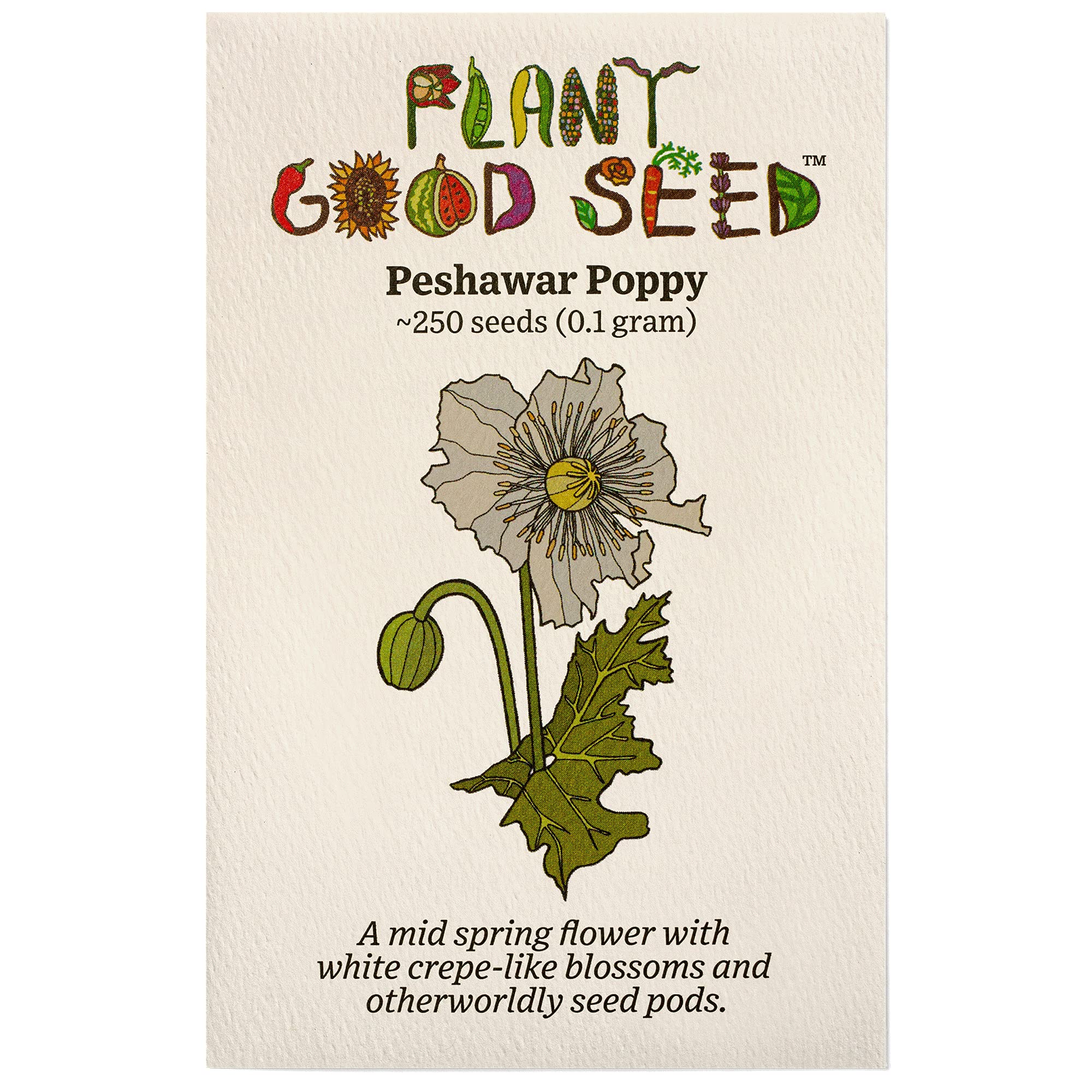All Categories






Plant Good Seed Organic Peshawar Poppy Seeds - Pack of 250, Pack of 100 Heirloom Seeds For Planting Flowers - Gardening Supplies, Herb Garden, Wildflower, Flower Seeds To Plant Outside - Non-GMO, From USA
Share Tweet
Get it between 2024-12-03 to 2024-12-10. Additional 3 business days for provincial shipping.
*Price and Stocks may change without prior notice
*Packaging of actual item may differ from photo shown
- Electrical items MAY be 110 volts.
- 7 Day Return Policy
- All products are genuine and original
- Cash On Delivery/Cash Upon Pickup Available








Plant Good Seed Organic Peshawar Poppy Seeds - Pack Features
-
PESHAWAR POPPY SEED - A gorgeous spring bloomer and widely recognized for its showy white blossoms that give way to giant, heavy yielding seed pods. A standout in the garden, the large white flowers are very attractive to bees and other beneficial flying insects.
-
EASY TO GROW, HARVEST, AND ENJOY - Beautiful addition to the garden! Can be directly seeded in rows in early spring after frost danger has passed. 75 days from seed to flower. Annual. Grow from early spring to early summer in most climates. Each packet contains ~250 seeds.
-
SEEDS YOU CAN TRUST - Our seeds are organic, non-GMO, heirloom, untreated, and open-pollinated. This makes sourcing seed from our company an easy and ethical choice. Seeds are certified organic by Oregon Tilth: OT-017423.
-
KNOW THE SOURCE, GROWN IN THE USA - Our company is located in Ojai, California. We take great pride in our plants and are dedicated to bringing you the best quality seeds for your garden.
-
GREAT CARE, GREAT RESULTS - Our team is dedicated to bringing you only the best selection! We have spent years developing our expertise as seed specialists. Our seeds are tried and true, resulting in better germination rates and hardy harvests!
-
FOR BEST RESULTS - Seed packets are marked with a “packed for” year, representing the year they were packaged. While the seeds do not have an expiration date, we do recommend planting within 15 months of purchase for best results. Happy planting!
About Plant Good Seed Organic Peshawar Poppy Seeds - Pack
Peshawar Poppy (Papaver somniferum var. album) is a gorgeous spring bloomer. Native to southeastern Europe and western Asia, and is widely recognized for its showy white blossoms that give way to giant, heavy yielding seedpods. A standout in the garden, the large white flowers are very attractive to bees and other beneficial flying insects. We’ve had great success finely direct seeding rows in early spring after frost danger has passed. We’ve also had moderate success starting seeds in cells and later transplanting them.




 (1)
(1)
















